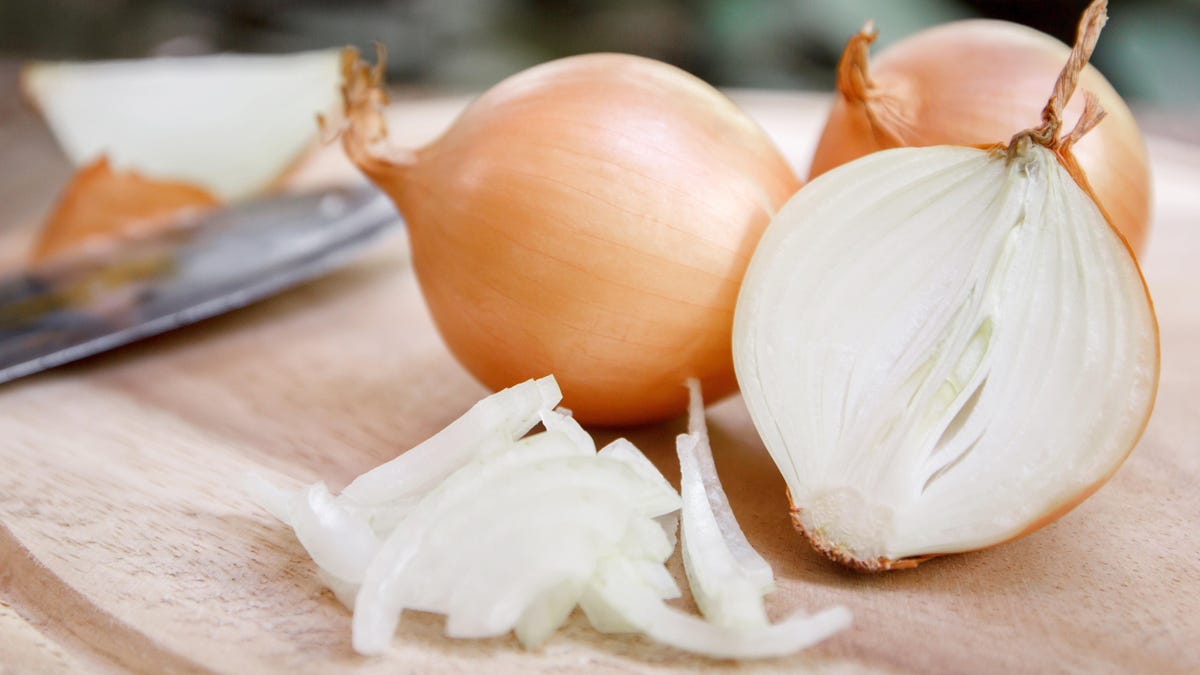This Is the Only Right Way to Slice an Onion
“How to chop an onion” is to food videos as “how to do a perfect cat eye” is to makeup tutorials; both have been done to death, yet people keep clicking, because both topics are critically important. And you...


“How to chop an onion” is to food videos as “how to do a perfect cat eye” is to makeup tutorials; both have been done to death, yet people keep clicking, because both topics are critically important. And you never know when you might learn something new. I thought I was quite learned in the ways of onion slicing and dicing until I encountered this informative missive from the folks at Cook’s Illustrated.
It turns out that the direction you slice an onion matters. The more cellular walls you damage, the softer the onion will become, especially after cooking:
When you slice across these layers, you separate them into small pieces that soften when cooked—ideal for pureeing into a smooth soup or sauce. However, when you slice with the direction of the fibers, you preserve their structure. That means the onions will maintain their shape even when cooked for a long time until deeply browned and flavorful, which makes them perfect for French onion soup or caramelized onions.
This doesn’t make that much of a difference if you’re eating the onion raw—like on a burger or in a salad—or melting them down into a comforting soup, but if you want to make a nice soup or stew with discernible pieces of onion, you should slice them vertically (pole to pole).
Doing so is not difficult. Start by slicing off both ends, then cut the onion in half, pole to pole. If you see concentric circles (rings), you have sliced in the wrong direction. Peel the skins off, then slice, following the onion’s natural lines. Doing so decreases the amount of cellular damage inflicted on the onion, which will help them remain a little more resilient and a little more toothsome.
G/O Media may get a commission

 Fransebas
Fransebas 
































